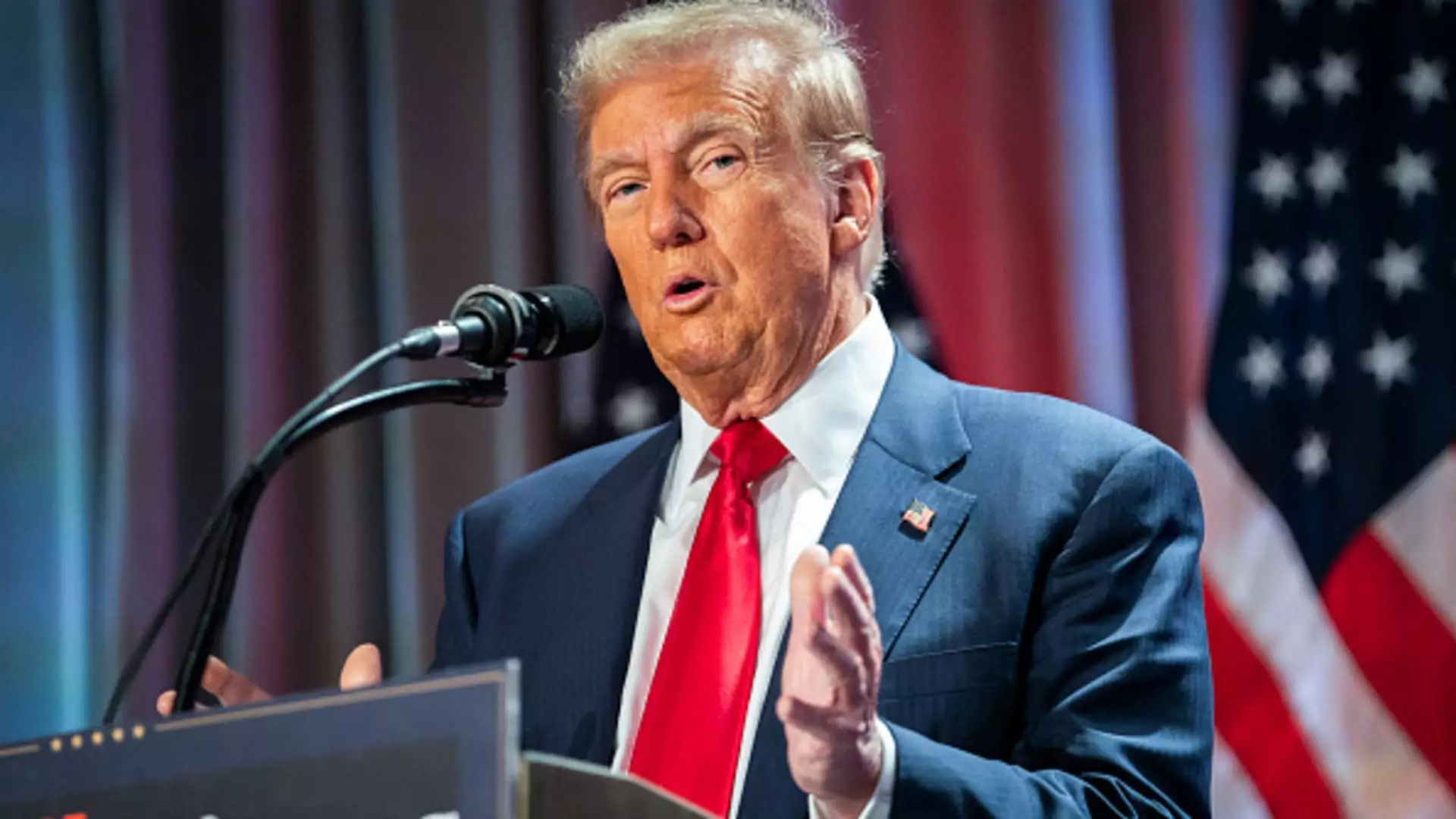In light of President-elect Donald Trump’s proposed tariff agenda, investment strategies are rapidly evolving to align with the anticipated economic changes. Money manager John Davi, the CEO of Astoria Portfolio Advisors, emphasizes the importance of a careful investment selection process, given the inflationary potential that comes with these policy shifts. Davi’s insights reflect a broader concern among financial analysts about the impact a protectionist stance could have on market dynamics and, by extension, investor strategies.
Davi’s analysis points to a pivot in investment focus towards small-cap industrials rather than their large-cap counterparts. According to his insights shared on CNBC’s “ETF Edge,” small-cap stocks are likely to benefit more from a favorable domestic policy environment that is geared towards growth. Post-election trends corroborate Davi’s forecasts; the Russell 2000 index, which is a key indicator for small-cap stocks, suggests a robust uptick of around 4%. This data underlines the confidence Wall Street has in the potential for small-cap companies to thrive under a pro-business regime.
Domestic Focus Amidst Tariff Risks
Davi stands firm on the notion of maintaining a domestic focus despite external tariff risks. With the evolving political landscape and anticipated policies that could support U.S. economic growth, he expresses confidence in the American market. By rooting his investment strategy in domestic assets, Davi argues that investors can leverage the growth potential until the midterms, capitalizing on two years of projected economic initiatives led by the Trump administration.
While Davi champions small-cap investments, he also expresses caution towards fixed-income assets, signaling potential risks stemming from increased budget deficits. His outlook includes a stern warning for bondholders; the rise of Treasury yields post-election suggests that the cost of borrowing may increase, complicating the outlook for bond investments. This cautious stance reflects a growing consensus that the fixed income market may face headwinds amid shifting economic conditions and fiscal policies.
As the trajectory of economic policy under the Trump administration unfolds, investors like John Davi are aligning their strategies to navigate the complexities introduced by tariff challenges and inflation concerns. The shift toward small-cap stocks, alongside a strong emphasis on domestic investment, resonates well with the sentiment in today’s financial markets. Additionally, the cautious perspective on fixed income serves as a reminder to consider the broader implications of fiscal policies on traditional investments. For those willing to adapt their strategies, there lies significant opportunity in the defined risk landscape characterized by the new administration’s policies. It remains vital for investors to stay informed and agile as market conditions continue to evolve.

